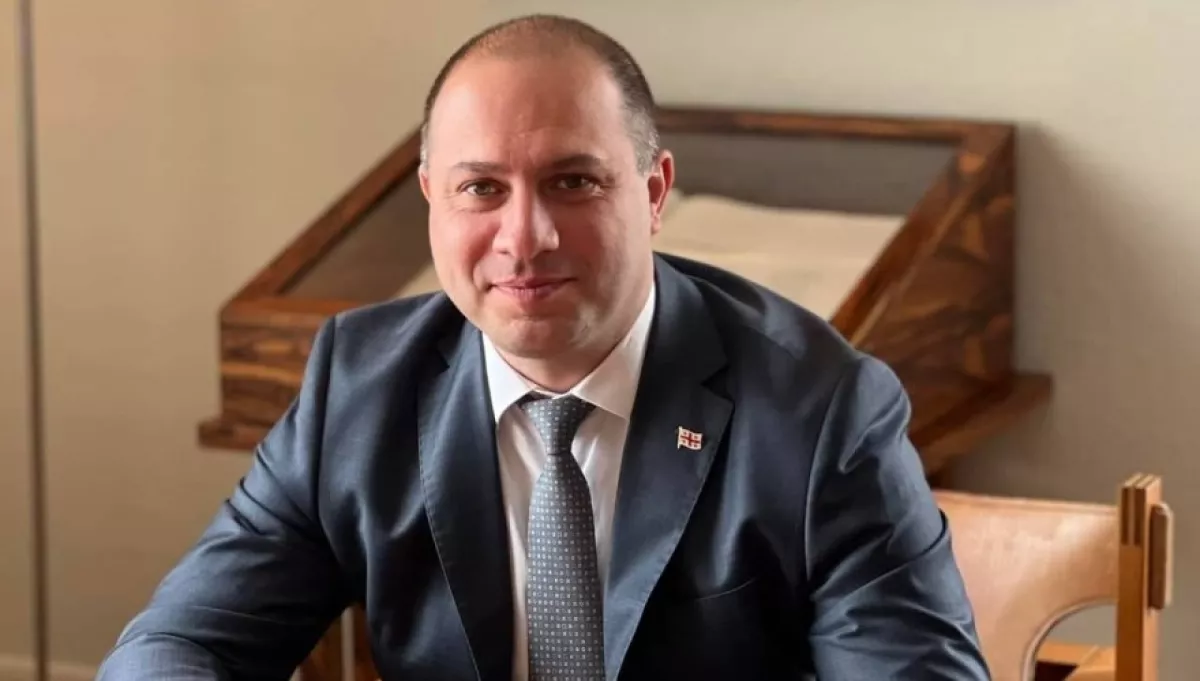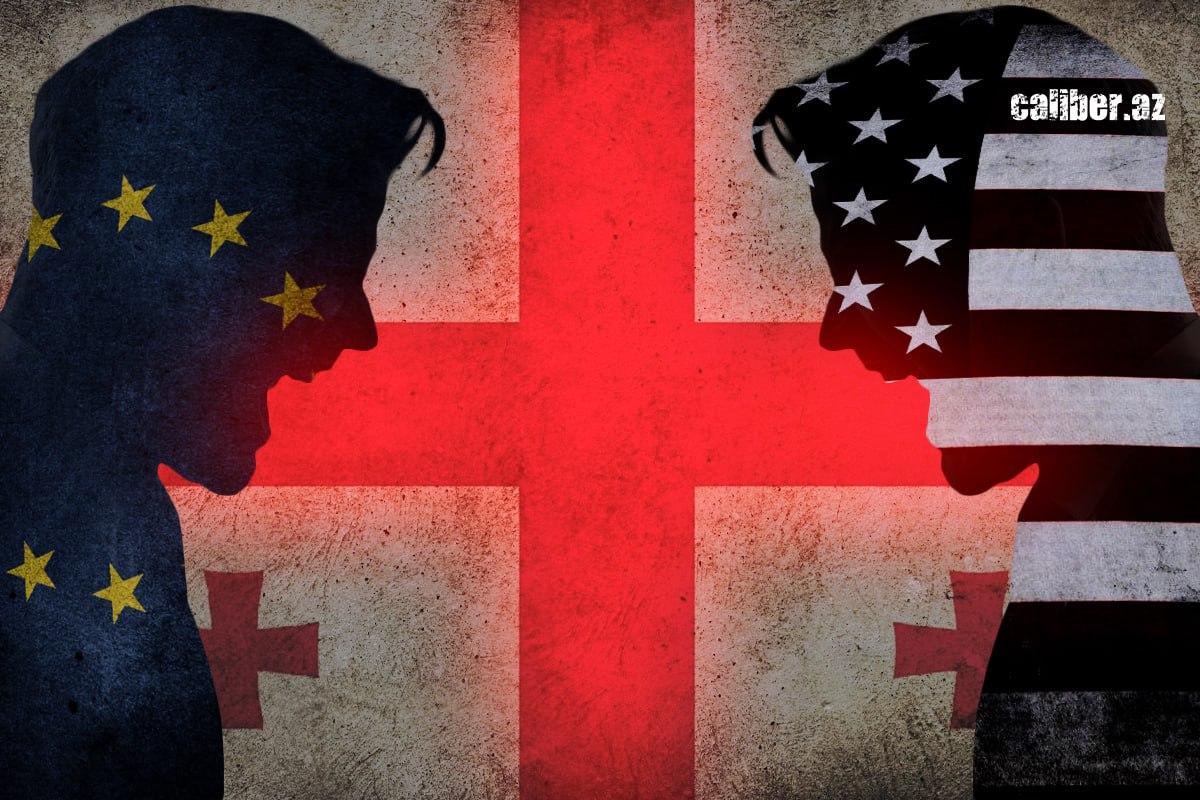Georgian delegation's stand against anti-Azerbaijani sentiment at PACE No room for debate
In an interview with Caliber.Az, Givi Mikanadze, the head of the Georgian delegation to PACE and chairman of the Georgian Parliament's Committee on Education, Science, and Youth, discussed recent developments within PACE, political dynamics in Georgia, and his perspective on the Azerbaijan-Armenia settlement process.
The Georgian delegation recently blocked an attempt to hold an anti-Azerbaijani hearing in PACE. Thank you for your commitment to this cause. Could you elaborate on what specific issues led to the Georgian delegation’s firm stance?
- At the recent PACE session, certain political groups proposed discussing the situation in Azerbaijan without providing specifics. Our delegation strongly opposed this initiative. First and foremost, it is unacceptable to discuss any country in the absence of its representatives; this approach goes against our principles. Furthermore, we consistently stress the importance of Azerbaijan's swift return to PACE, which serves as a vital political platform for enhancing relations among countries within the Council of Europe. In our view, it is crucial for Azerbaijan to be an active member of the Council, just as it is essential for the Council to include Azerbaijan in all discussions.
During my speech, I also highlighted the recent early parliamentary elections in Azerbaijan, emphasizing that this presents a great opportunity to initiate a new dialogue between PACE and Azerbaijan, helping to align our positions. Additionally, in my conversations with MEPs, I underscored the importance of ensuring that the entire South Caucasus region is fully represented in all formats of the Council of Europe.

Recently, I met with Alain Berset, the Secretary General of the Council of Europe, where we discussed a significant matter for our delegation: the steps necessary to facilitate the return of the Azerbaijani delegation to PACE. Georgia has consistently supported this position, and we are committed to making every effort to ensure Azerbaijan's reintegration into this organization.
The United States and the EU have been exerting political pressure on Georgia for months now, and there is a sense that Baku and Tbilisi are in the same boat. What are your thoughts on this?
- It's crucial for us that the assessments and conclusions of European observers at the upcoming parliamentary elections in Georgia are fair, objective, and truly reflect the will of the Georgian people. Unfortunately, many recent statements from Europe regarding Georgia have been characterized by double standards and bias. While the Council of Europe is a respected and important organization for us, its opinions carry significant weight. I have consistently conveyed to my colleagues in PACE that Europe must adopt a fair approach to the decisions made by the Georgian electorate. If this does not happen, it risks eroding public trust in the institution. We have been assured that the actions of European observers will be transparent and objective and that representatives of international organizations will consider our demands. We hope that this assurance translates into reality.
At the same time, it seems the West is inclined to engage with the Georgian opposition. How does Tbilisi perceive this?
- We have repeatedly tried to convey to our Western partners some fundamental truths, particularly that the opposition in Georgia is quite weak and lacks significant support from the populace. Without the biased statements from abroad, it’s possible that radical opposition in Georgia wouldn’t even exist. These radical elements are often fueled by destructive statements and base their politics on them. We can see how certain Western powers exploit this situation. When they make statements that ostensibly address the broader Georgian society and its politicians, they often target radical forces. Such undertones in Western rhetoric certainly serve particular agendas, which is quite unfortunate.

Georgian society, on the whole, evaluates the situation objectively, recognizing the significant contributions the ruling party has made towards the country’s development and peacekeeping efforts. Notably, this is the first government in Georgia that has maintained stability without wars or major armed conflicts on its territory. As a result, the Georgian Dream party remains optimistic about securing a constitutional majority in parliament. We are confident in our victory, as it represents not just the success of the Georgian Dream, but also the aspirations of the majority of Georgian society, which seeks peace and development as a member state of the European Union.
How does the Georgian delegation evaluate the current level of pressure being exerted on Georgia, particularly in the context of organizations like the Council of Europe, as we approach the autumn session of PACE?
- The new composition of the European Parliament is just beginning its first sessions, so it's premature to make definitive judgments. However, we can categorically state our views on the previous parliament: it discredited itself by passing resolutions that were not only insulting to Georgia but also completely misaligned with the reality on the ground. As a result, there was little to no reaction from the Georgian public, as the resolutions were seen as absurd.
We hope that the new parliament will adopt a different, more honest, and objective stance towards Georgia's choices. After the upcoming elections, I have little doubt that the Georgian Dream party will secure a majority in the new parliament. I believe this choice will be recognized in Europe and the broader West as an established fact, leading to positive developments in our relations.
What is Georgia's stance on the Armenian-Azerbaijani settlement process?
- I can state unequivocally that Georgia prioritizes peace and development in the South Caucasus region. It is vital for us to establish a constructive dialogue between the countries involved. Georgia is eager to see a peace agreement signed between Baku and Yerevan as soon as possible and stands ready to offer all necessary assistance, particularly by serving as a platform for negotiations and the potential signing of such an agreement. We are prepared to engage in the process whenever the parties decide that Georgia's involvement can facilitate the resolution of certain issues.








